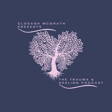
Stefania Ceolin - Yoga & Psychotherapy
In this week's podcast episode, Stefania and I explore the intersection of yoga and psychotherapy in the context of trauma healing and intuition. We begin by discussing Stefania's personal experience with yoga and how it helped her connect with her inner knowing. We then dive into the ways in which trauma can disrupt our sense of self and how the practices of yoga and psychotherapy can complement each other in facilitating healing and restoring that connection.
Throughout the episode, we emphasise the importance of listening to one's intuition and finding a path that works best for them. We also discuss how incorporating mindfulness and body-based approaches can enhance traditional talk therapy approaches and how seeking support from qualified professionals is essential in the healing journey.
Overall, this episode offers insights into the potential benefits of integrating yoga and psychotherapy and how they can help individuals navigate their unique healing journey. We hope that it inspires listeners to explore these practices and prioritise their own self-care.
Don't forget to like and follow for more episodes.
Take care, folks.
Where can you connect with Stefania Ceolin
Email: stefania@sunshinewithin.com
Instagram: https://www.instagram.com/stefania_sunshinewithin/
Books Mentioned
The Body Keeps The Score - Bessel van der Kolk
Psychosynthesis: A Collection of Basic Writings - Dr. Roberto Assagioli
Awareness - Anthony de Mello
When the Body Says No - Gabor Mate
This Body is Not an Apology - Sonya Renee Taylor


